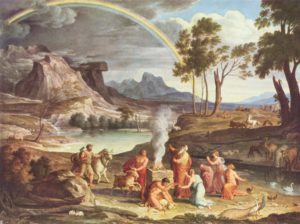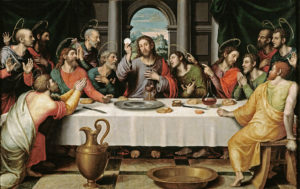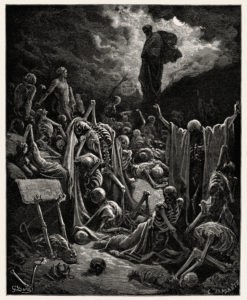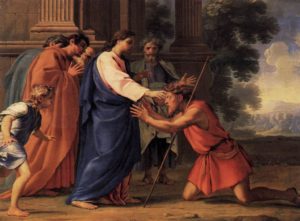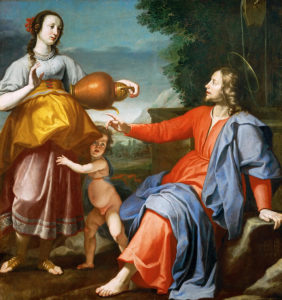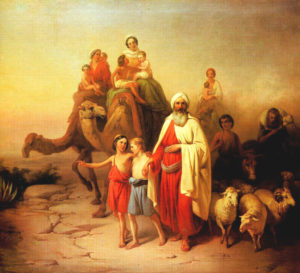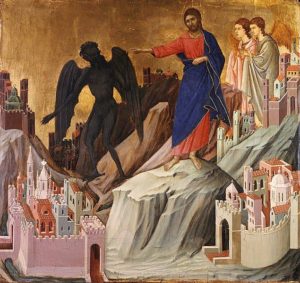Thoughts on Sunday’s Lessons for Feb. 25, 2018
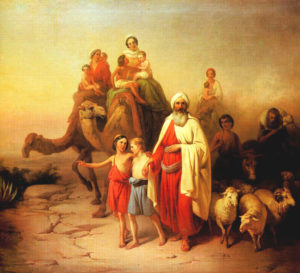
Abraham’s Journey from Ur to Canaan. Oil on canvas (1850), by József Molnár (1821-1899). Hungarian National Gallery. (Click image to enlarge.)
Our first reading this week turns to another great Old Testament covenant: God’s promise to Abram and Sarai, whom God calls to go to a new land at a great age. They are given new names – Abraham and Sarah – and receive God’s promise that they and their offspring will yield a great multitude of nations and that God will be with their offspring forever. This seems surprising, considering that Abram is 99 and they have had no children yet. Unlike God’s unconditional covenant with Noah that we heard last week, this covenant is reciprocal: In order for their offspring to gain the Promised Land (a promise made in the verses that our Sunday reading skips over), they and their descendants must “walk before God and be blameless.”
Psalm: Psalm 22:22-30
The theme of God’s covenant with Abraham and Sarah, through their grandson Jacob, the son of their son Isaac, echoes in Sunday’s Psalm portion. The Psalmist exults in the eternal nature of that covenant with Jacob (whom God later renamed Israel), and calls on all of Israel’s offspring to serve God, because as a result of Abraham’s covenant they will be known as God’s own forever. Even now the priest repeats those words in every baptism, while those being welcomed into the household of God are anointed with blessed oil, sealed by the Holy Spirit and marked as Christ’s own for ever.
Second Reading: Romans 4:13-25
Paul, too, evokes the eternal nature of God’s promise to Abraham’s descendants, but he adds something new: Paul reaches out to include Gentile Christians within God’s promise, too. While Abraham’s descendants received God’s covenant through the law, Gentiles who become Christians now receive it through their new faith. Seeking to reconcile a faith community in Rome that included both Jewish and Gentile Christians, Paul assures them that all are now children of Abraham and Sarah, too, through our faith in Jesus’s death and resurrection.
Gospel: Mark 8:31-38
Our Lenten Gospels are bouncing around in Mark, taking us to important points on Jesus’ journey to the Cross rather than following strict chronological order. Here Jesus is telling the disciples things that they do not want to hear. In the verses just preceding these, Jesus asked them who they think he is, and bold Peter blurted out, “You are the Messiah!” Now, Jesus warns, the road ahead will not be easy. He will face rejection, punishment and death before rising again after three days. Now Peter argues with Jesus, taking him aside to challenge that approach. Jesus’ quick response to Peter is startling: “Get behind me, Satan!” If you want to follow me, Jesus tells them, you must deny yourself. Take up your cross. You will have to give your life if you wish to save it.

